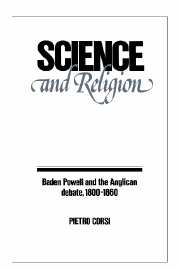Summary
The theological doctrines of the Noetics collided with the increasing conservatism of several factions within the High Church party when the Oriel approach to theology and philosophy came to be regarded as the theoretical basis for political subversion. It is, however, interesting that while the British Critic in 1829 started a campaign against the anonymous ‘Episcopalian’ and launched open and veiled attacks against Whately and his friends, in Oxford itself the situation remained relatively calm. Notwithstanding the sharp division on the Peel re-election affair, evidence suggests that in the university at large and in Oriel the atmosphere was less tense than expected. Copleston was reassured by Hawkins that the split within the Oriel community left scarcely perceptible ill feeling. Whately conveyed the same impression to Sir Robert Peel. Blanco White sensed a change of attitude on the part of some of his closest friends after he had voted for Peel, but could not report any perceptible estrangement. When in 1831 Whately left for Dublin, he asked Hawkins to take care of pending business relating to St Alban Hall and suggested Newman as the second best choice.
Beneath the official calm, a change had indeed occurred. Newman's attitude towards his friends, or, at first, towards their ideas, underwent a revolution. The Peel affair, the confrontation with Hawkins on the reform of the tutorial system at Oriel proposed by Newman, and matters of academic policy and jealousy widened the gap between Newman, Froude and Keble and the group of the friends and disciples of Whately. It could be argued that Baden Powell directly contributed to ‘opening’ Newman's eyes as to the inevitable outcome of Whately's teaching.
- Type
- Chapter
- Information
- Science and ReligionBaden Powell and the Anglican Debate, 1800–1860, pp. 96 - 105Publisher: Cambridge University PressPrint publication year: 1988

